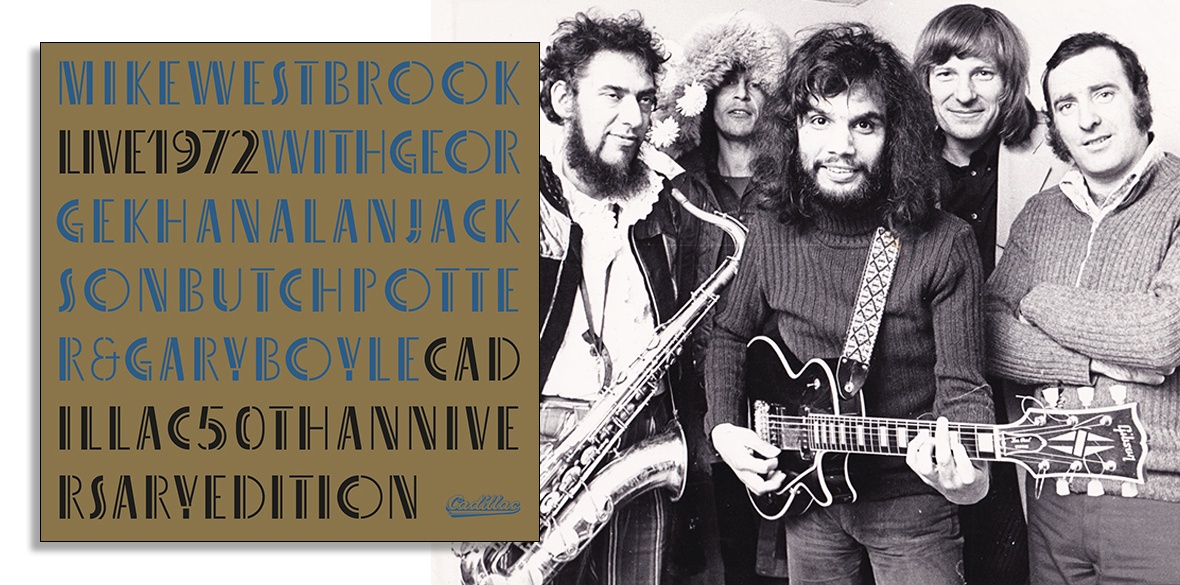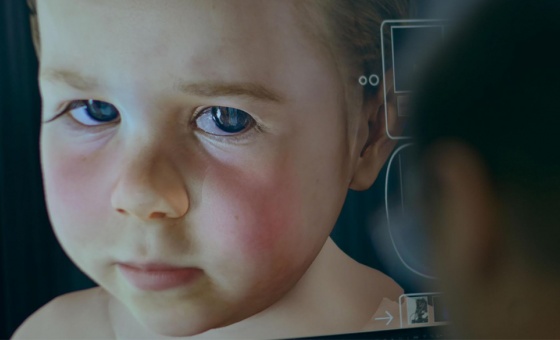This is the last article you can read this month
You can read more article this month
You can read more articles this month
Sorry your limit is up for this month
Reset on:
Please help support the Morning Star by subscribing here
OF all the albums that the multiple formations of the Mike Westbrook bands have made from duos, trios, to full orchestras and his present “Band of Bands,” the Live, 1972 album, now reissued, gives us the freest expression of Westbrook’s music.
Over half a century on, its power and liberated sounds create an uncanny unity with the free improvisation much more common in now-times.
The guitarist on the 1972 album was the outstanding Gary Boyle, whose soloing throughout the album’s seven long tracks radiates the influences of Ornette Coleman, a strong dose of the blues, and if you listen closely on such tracks as Spaces, you can hear the far echoes of the sitar and his Indian birthplace.
Born in Patna, India, in 1941, his father worked on the Indian railways. “I was a child of colonialism,” he quips. “They called us Anglo-Indians.”
Coming to London in 1949, he lived in Fulham, then Lewisham. “I grew up in the skiffle era,” he tells me. “I began to play guitar at 16, and as a teenager we used to play our guitars and sing in West End coffee bars. When I left school I had a job turning the lathes in a metal factory in Blackheath.”
The 1960s took him towards pop group professionalism. “We did the Germany circuit. I remember we played in Hamburg at the same time as the Beatles. They were playing just a street away.” Later he toured with Millie (of My Boy Lollipop fame), Dusty Springfield and Brian Auger and Julie Driscoll’s Trinity.
But jazz was his primary love. He had heard Coltrane’s only English concert at the Granada, Walthamstow, in 1961, and as the power of his music sank in, he knew it was what he wanted to play.
He joined Westbrook in 1972 and toured with the five-piece band in that same year.
“We played very free music,” he remembers, ”even though it wasn’t what we listened to. But that became quite common. I was listening to and being excited by Miles Davis and Coltrane, yet what we played on that tour was much freer. I think that it was the only time I was ever recorded playing as free as that.
“The 1970s were a key political time for all of us: support for the people in South Africa, opposition to the US war in Vietnam, and the Civil Rights Movement were all a part of my political awakening.
“All the universities and art colleges we played at were alive with politics and the music we played fully supported those struggles. We may not have gone on many marches because we were so busy, but we played our music to support them.”
And Marching Song, on the record, a free echo of the section of Westbrook’s 1969 similarly titled orchestral suite, crystallises in sound that era of protest and resistance.
What about his four bandmates? “Westie was so laid back as a leader, he was never dogmatic about the music. Although he was a musician who wrote so creatively and often structurally, he was always very non-prescriptive and never constrained us.”
Tenor saxophonist and flutist George Khan he described as “a completely off-the-wall, brilliantly anarchic musician with a big, free sound,” and drummer Alan Jackson “was lovely to play with, unfettered and always responsive.” The bassist, the late Butch Potter, “was a very solid player who really underpinned the rest of us.”
As for Boyle, he plays throughout the album as if playing so free was totally natural and normal to him, even though it was not his usual style. The five play truly like a prophecy of the music to come half a century later, sounds you might hear of free improvisation at present-day sessions at venues like Cafe Oto or the Vortex. As such it is a unique album driven by the future in the 1972 present.
Living in rural West Yorkshire now as an octogenarian, Boyle remains an activist, helping to organise the pro-Palestinian movement in his area, as if his music has been the true soundbeat of his political heart, expressed in those extraordinary sessions five decades ago.
Mike Westbrook: Live 1972 is released by Cadillac Records.











